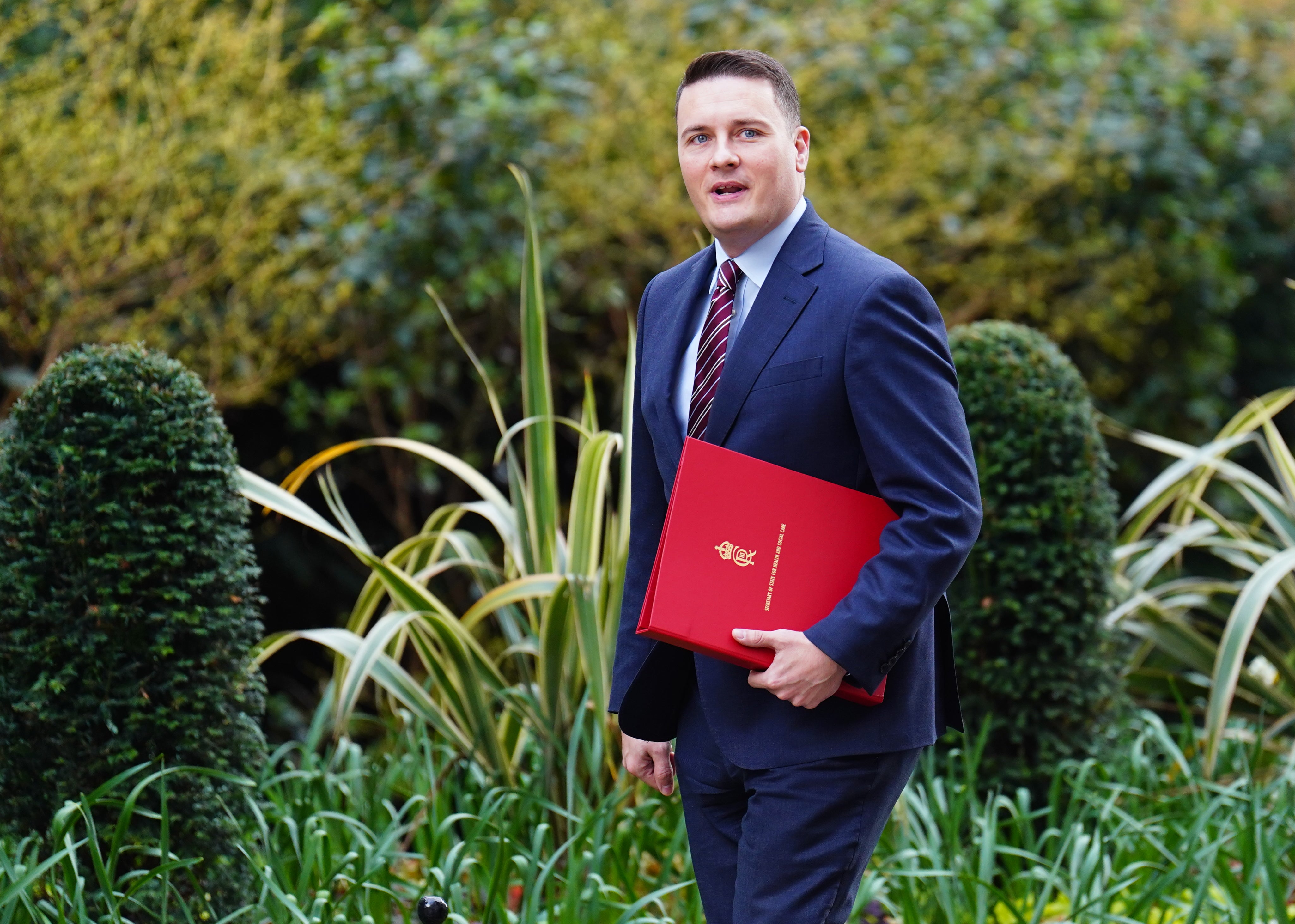Wes Streeting ought to cut and run to a safer seat – his country needs him
The health secretary says he will stay and fight Ilford North, which he held by only 528 votes last time. It is admirable but foolish of him, writes John Rentoul

Wes Streeting said he was “definitely not” tempted to move to a safe seat. “Ilford North is my home, and I don’t believe in cutting and running,” he told Michael Gove, editor of The Spectator, and Katy Balls, its political editor.
This is brave of him. He came within 528 votes of losing to Leanne Mohamad, a pro-Palestinian independent candidate, last year. Given that Labour is unlikely to increase its vote next time – and that Mohamad is a strong campaigner with some national profile – the odds are against him holding on.
Streeting was defiant in his interview, though: “I won against the odds in 2015, I won despite the pressures in 2024 and I plan to go into the next election in Ilford North with a track record of turning around the NHS, making a real change for my constituency and changing people’s lives and I’ll be standing on my record at the next election.”
This is all very admirable, but anyone who really cares about the NHS should encourage him to take the coward’s way out and find a safe seat. He is one of the few cabinet ministers who is actually delivering the “change” that the country voted for, and we know from the last time that Labour was in government that rebuilding the NHS is the task of more than one parliament.
Of course, it is too early to judge Streeting’s “track record of turning around the NHS”, just nine months in. And, yes, he has employed the presentational device of setting himself some easy targets and meeting them early. He boasted to The Spectator that “we promised to deliver two million more appointments in the first year of a Labour government” and said it is “a milestone we hit seven months early”.
But that is politics, and being good at politics is part of being good at changing a huge organisation such as the NHS. And they are the right sort of targets, helping to send the right sort of messages while we wait for the hard work of deep change to produce results.

Equally, abolishing NHS England may have been a bureaucratic organogram-based exercise, but it was right, and again sent the right messages, of devolution and accountability.
Streeting’s approach to reform is fundamentally sound, which is to bring in the people who made the NHS the best it has ever been and put them to work. Alan Milburn, the former health secretary, and Paul Corrigan, the former special adviser, are advising Streeting; while Michael Barber, the head of Tony Blair’s delivery unit, and Liz Lloyd, Blair’s deputy chief of staff, are working in No 10 – one of the lessons from the New Labour years being the importance of prime ministerial engagement.
By drawing on such experience, Streeting may be able to start producing results more quickly than Blair did a quarter of a century ago – although the NHS faces different challenges, of an older population (social care is a bigger problem this time round) and more attention paid to mental health.
One lesson from Labour’s recent history, of which Streeting is well aware, is that many of the proven solutions to the service’s problems are resolutely opposed by the party’s members. Using the private sector to deliver NHS care free at the point of use, for example, or changing working practices to suit patients rather than staff.
If he has learnt from the past, though, Streeting will know that appeasing such conservatism never works, and that what matters is constantly explaining how reforms will benefit the less well-off. Or, as he put it to The Spectator, “making sure that people from working-class backgrounds like mine have the same choice and the same control, the same freedom to choose their healthcare, as someone from the wealthiest background”.
That takes courage and communication skills, and Streeting is well endowed with both. He is the only minister, I think, who has said he has changed his mind on the trans issue, which, whatever you think of the issue itself, is brave.
His reward with Labour members is to come 21st out of 25 cabinet ministers in this month’s Labour List/Survation favourability league table, with a net score of minus two – which means that half of members have an unfavourable view of him (50 per cent) and half have a favourable one (48 per cent). If he were to lose his seat at the next election, there would be no shortage of people who would be celebrating. But it would not be in the national interest.
Find yourself a safe seat, Wes, and save the NHS, not your pride.
Join our commenting forum
Join thought-provoking conversations, follow other Independent readers and see their replies
Comments